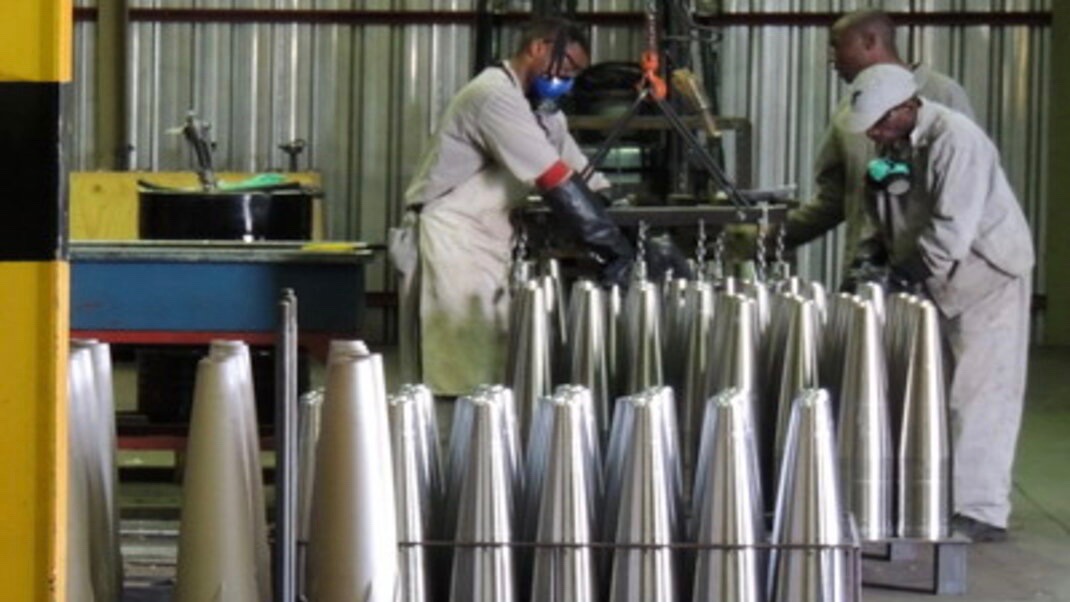Rheinmettal Denel Munition, an ammunition manufacturer jointly owned by Germany-based Rheinmetall Waffe Munition and South Africa-based Denel, is hiring temporary workers to labor in its factory in the city of Boksburg. The company produces ammunition for mortars, artillery and naval guns and calls itself “a world leader in the field of artillery, mortar and infantry systems”.
The move is an attempt to undermine the strike action by members of the National Union of Mineworkers of South Africa (NUMSA) who have downed tools since February 11, to demand to be allowed to opt out of a costly medical aid scheme imposed on them by the company.
NUMSA has expressed safety concerns about the use of temporary workers at this plant.
Jacob Xilongo, NUMSA’s regional secretary for Ekurhuleni, warned that the “temporary labor which they are depending on to undermine the strike, may not have been properly trained or vetted in order to ensure that they maintain quality and safety processes.”
“Our members”, he added, “have been properly trained but the majority are on strike, therefore we have to wonder if all safety procedures are being properly followed. We cannot afford for another explosion to take place.”
NUMSA has also raised questions about the safety measures in place in Rheinmettal Denel’s factories. In September 2018, an explosion at one of the company’s factories on the outskirts of Cape Town claimed the lives of eight workers and destroyed the entire building.
“We still do not have any answers from the Department of Labour regarding the causes of that explosion,” Xilongo complained.
NUMSA has called on the employers to engage with its members to “find an amicable resolution to the strike as their stubbornness is a possible threat to the safety to workers and the public in general.”
The striking workers’ main demand is to be able to opt out of a medical scheme imposed on them by the management. To pay for this scheme, which does not cover the families of the employees, R1300 (USD 17.15) is deducted from the meager salary of R8400 (USD 480.33) that most NUMSA members earn.
Further, Xilongo claims, “we believe that employees are the only ones contributing in the scheme, because it is unclear what the contribution of the employer is. Workers are demanding that membership to the medical aid must become optional.”





